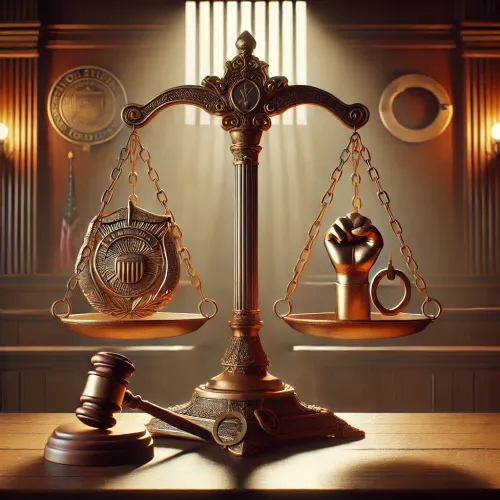Background
The case of In re Baltimore Police Officer No. 944 (2010) explored the procedural protections afforded to law enforcement officers under Maryland’s Law Enforcement Officers’ Bill of Rights (LEOBR). The case involved a Baltimore police officer who was accused of misconduct and subjected to an internal investigation. The officer, referred to as Officer No. 944 to protect anonymity, challenged the department’s decision to impose disciplinary sanctions without fully adhering to the procedural requirements of LEOBR.
The allegations against the officer included misuse of authority and improper conduct during an arrest. The officer claimed that the Baltimore Police Department (BPD) violated his rights under LEOBR by failing to provide a fair and timely hearing before a trial board. The department argued that its actions were consistent with its policies and that it had substantial grounds to discipline the officer without a formal hearing.
Legal Issues
The Maryland Court of Special Appeals was tasked with addressing the following issues:
- Whether the Baltimore Police Department violated the procedural safeguards guaranteed under LEOBR by failing to provide the officer with a trial board hearing.
- Whether the disciplinary actions imposed without a formal hearing were valid under Maryland law.
The case required the court to interpret LEOBR’s provisions and determine whether the procedural deviations by the BPD invalidated the disciplinary actions.
Relevant Provisions of LEOBR
Maryland’s Law Enforcement Officers’ Bill of Rights (LEOBR), codified in Maryland Code, Public Safety Article § 3-101 et seq., provides specific procedural protections for law enforcement officers subject to disciplinary action. Key provisions relevant to this case include:
- Right to a Trial Board: Officers are entitled to a hearing before a trial board prior to the imposition of punitive action, such as suspension or termination (§ 3-107).
- Notice of Charges: Officers must receive written notice of the charges against them in a timely manner (§ 3-104).
- Right to Representation: Officers have the right to be represented by counsel or another representative during disciplinary proceedings (§ 3-104(j)).
The officer alleged that the BPD’s failure to provide a trial board hearing violated these statutory protections.
Arguments Presented
The officer argued that LEOBR guarantees procedural fairness in disciplinary proceedings and that the BPD violated this principle by imposing punitive actions without convening a trial board. The officer maintained that the lack of a formal hearing deprived him of an opportunity to present evidence, cross-examine witnesses, and defend against the allegations. He contended that these violations rendered the disciplinary actions unlawful and void under LEOBR.
The Baltimore Police Department countered that the evidence of misconduct was overwhelming and justified immediate disciplinary action. The department argued that its procedures were consistent with its internal policies and that any procedural deviations under LEOBR were harmless and did not prejudice the officer’s rights. The BPD further asserted that it had the authority to discipline officers promptly to maintain order and public trust.
Judicial Analysis
The Maryland Court of Special Appeals examined the procedural safeguards established under LEOBR and their application to the disciplinary process in this case. The court emphasized that LEOBR was enacted to ensure fairness and due process for law enforcement officers while preserving the ability of agencies to enforce discipline.
The court found that LEOBR explicitly requires a trial board hearing before the imposition of punitive actions. It rejected the BPD’s argument that procedural deviations were harmless, stating that the absence of a trial board hearing deprived the officer of a fundamental right to due process. The court noted that LEOBR’s procedural safeguards are mandatory and cannot be bypassed, even in cases where the evidence of misconduct is compelling.
The court also highlighted the importance of adhering to LEOBR’s requirements to maintain transparency and accountability in disciplinary proceedings. It cautioned that allowing exceptions to these safeguards would undermine the statute’s purpose and erode trust between officers and their departments.
Holding and Outcome
The Maryland Court of Special Appeals ruled in favor of Officer No. 944, holding that the Baltimore Police Department violated LEOBR by failing to provide a trial board hearing before imposing disciplinary actions. The court declared the disciplinary measures invalid and ordered the BPD to reinstate the officer pending a properly conducted trial board hearing.
The decision reinforced the mandatory nature of LEOBR’s procedural safeguards and underscored the consequences of failing to comply with its provisions.
Precedential Value
In re Baltimore Police Officer No. 944 is a significant case in Maryland law enforcement, reaffirming the importance of procedural protections under LEOBR. The ruling clarified that trial board hearings are a mandatory prerequisite for disciplinary actions and that law enforcement agencies must strictly adhere to LEOBR’s procedural requirements.
The case has been widely cited as a precedent for interpreting and enforcing LEOBR, particularly in disputes involving alleged procedural violations in police disciplinary proceedings.
Impact on Law Enforcement Practices
The decision prompted law enforcement agencies across Maryland to review their disciplinary policies and practices to ensure compliance with LEOBR. Police departments were encouraged to:
- Provide officers with timely and specific notice of allegations before initiating disciplinary actions.
- Ensure that all punitive actions are preceded by a trial board hearing, as required by LEOBR.
- Conduct training programs for supervisors and internal affairs personnel on LEOBR’s procedural requirements.
The ruling also underscored the importance of fairness and transparency in disciplinary processes, fostering greater trust between officers and their departments.
Comparison to Other Cases
This case aligns with earlier decisions interpreting LEOBR, such as Montgomery County Police Officers v. Montgomery County (1993), which emphasized the necessity of procedural safeguards in disciplinary investigations. While Montgomery County focused on the right to representation, Officer No. 944 addressed the broader issue of trial board hearings, further refining the application of LEOBR.
The ruling also aligns with national precedents emphasizing due process protections for public employees, such as Cleveland Board of Education v. Loudermill (1985), which established the right to a pre-termination hearing.
Policy Implications and Commentary
The ruling in In re Baltimore Police Officer No. 944 underscores the balance between protecting law enforcement officers’ procedural rights and maintaining accountability within police departments. By affirming the mandatory nature of LEOBR’s safeguards, the decision ensures that officers are treated fairly during disciplinary proceedings while preserving public trust in the integrity of law enforcement.
Critics of the decision argue that strict adherence to LEOBR’s requirements can delay disciplinary actions, while proponents contend that such safeguards are essential for upholding due process and fostering transparency in law enforcement.
In re Baltimore Police Officer No. 944 is a pivotal case in Maryland law enforcement, reinforcing the procedural protections afforded to officers under LEOBR. By invalidating disciplinary actions based on procedural violations, the decision underscores the importance of fairness, transparency, and accountability in disciplinary processes. The ruling continues to influence law enforcement practices in Maryland and serves as a critical reference point for ensuring compliance with statutory safeguards in police disciplinary proceedings.



